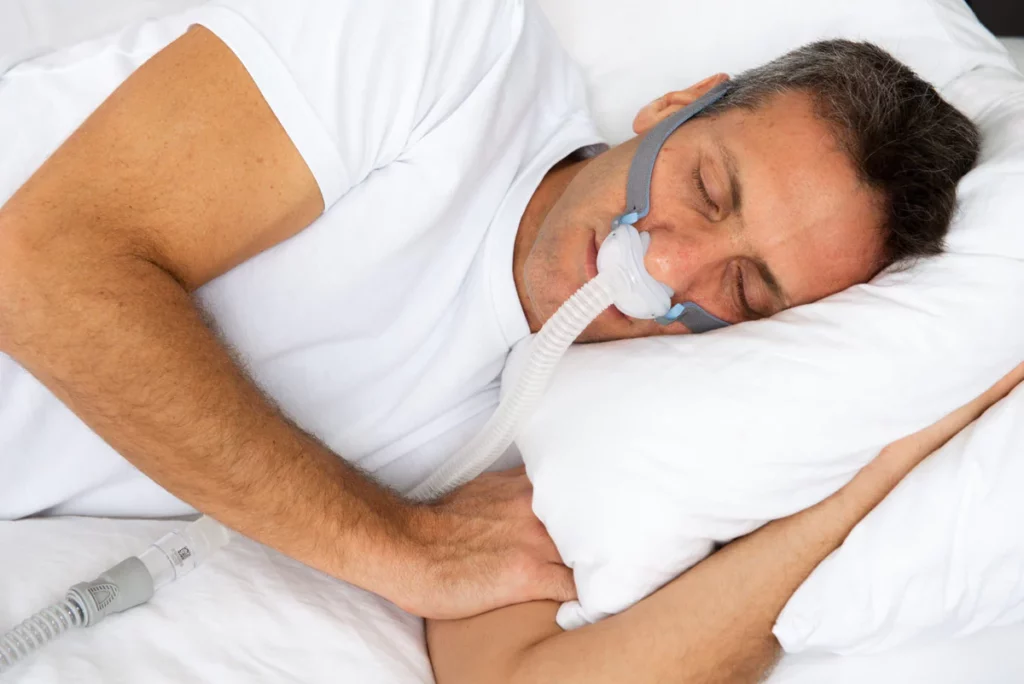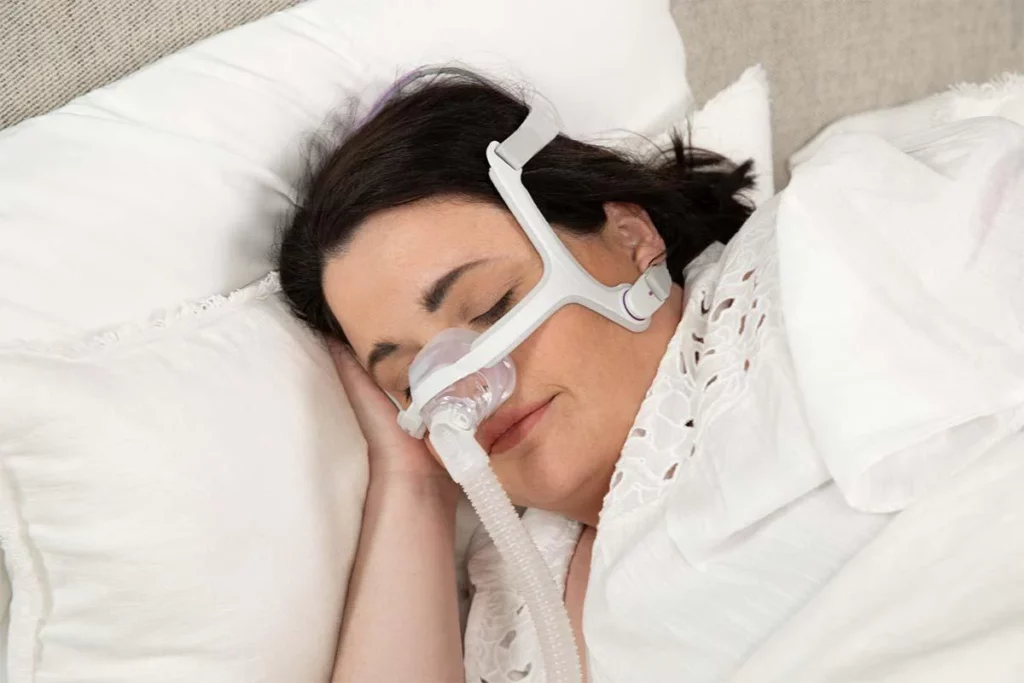Continuous Positive Airway Pressure (CPAP) therapy is a common treatment for obstructive sleep apnoea, a condition that affects millions worldwide. For individuals who breathe through their mouths during sleep, choosing the right CPAP mask is crucial for ensuring comfort and effectiveness. This article delves into the best CPAP masks tailored for mouth breathers, highlighting essential features and considerations.
Understanding the Needs of Mouth Breathers
Mouth breathers often face unique challenges when using CPAP therapy. Unlike nasal breathers, they may experience increased air leakage, dryness, and discomfort. Understanding these needs is the first step in selecting the most suitable CPAP mask.
Choosing the best CPAP mask is vital for mouth breathers to ensure effective therapy and a good night’s sleep. Full face masks and nasal masks with chin straps are excellent options, offering comfort and a secure fit. By considering key features such as comfort, adjustability, and ease of cleaning, users can find a mask that meets their needs.
Challenges Faced by Mouth Breathers
Mouth breathers typically struggle with maintaining a proper seal with nasal masks, which can lead to air leaks and reduced therapy efficacy. Additionally, the airflow can cause dryness in the mouth and throat, leading to discomfort and disrupted sleep. These challenges necessitate a mask designed specifically for those who predominantly breathe through their mouths.
Moreover, mouth breathers may also experience a higher incidence of oral health issues, such as gum disease and tooth decay, due to the constant exposure to dry air. This can create a vicious cycle where discomfort from CPAP therapy discourages consistent use, ultimately impacting overall sleep quality and health. Therefore, it is crucial to consider additional features in CPAP masks, such as humidification options, which can help alleviate some of these issues by adding moisture to the airflow, making the experience more comfortable.

Importance of Proper Fit
A proper fit is paramount for mouth breathers. Masks that are too loose may allow air to escape, while those that are too tight can cause discomfort and irritation. It is essential to try on different masks and sizes to find the perfect fit, ensuring that the mask provides a secure seal without causing pressure points.
In addition to comfort, the design of the mask plays a significant role in its effectiveness for mouth breathers. Full-face masks, which cover both the nose and mouth, are often recommended as they can accommodate the natural breathing patterns of those who cannot breathe through their noses alone. These masks not only help in maintaining a better seal but also reduce the chances of air escaping, thus enhancing the overall efficacy of the therapy. Users should also consider the weight and bulkiness of the mask, as a lighter, more streamlined design can contribute to a more restful night’s sleep, allowing for greater compliance with CPAP therapy over the long term.
Types of CPAP Masks for Mouth Breathers
When it comes to CPAP masks, there are several types to consider, each with its own advantages and disadvantages. For mouth breathers, the following types are particularly beneficial:
Full Face Masks
Full face masks cover both the nose and mouth, making them an excellent choice for mouth breathers. They provide a secure seal and allow for unrestricted airflow, regardless of whether the user breathes through their nose or mouth.
These masks are typically equipped with adjustable straps and cushioning to enhance comfort. However, some users may find them bulky or claustrophobic, which can be a drawback for those who prefer a lighter, less intrusive option. Learn more about claustrophobic at https://my.clevelandclinic.org/health/diseases/21746-claustrophobia
Nasal Masks with Chin Straps
Nasal masks are designed to fit over the nose, but for mouth breathers, they can be used in conjunction with a chin strap. The chin strap helps keep the mouth closed during sleep, encouraging nasal breathing and reducing air leakage.
This combination can be effective, but it may take some time for users to adjust to the feeling of wearing a chin strap. Additionally, it is important to ensure that the nasal mask fits well to prevent discomfort and leaks.
Key Features to Look For
When selecting a CPAP mask for mouth breathing, several key features should be considered to enhance comfort and effectiveness.
Comfort and Cushioning
Comfort is paramount when it comes to CPAP masks. Look for masks with soft, breathable materials and adequate cushioning to minimise pressure points. Masks with gel or foam cushions can provide additional comfort, particularly for those who are sensitive to pressure.
Adjustability
An adjustable mask is essential for achieving a proper fit. Many masks come with adjustable straps and headgear, allowing users to customise the fit to their individual needs. This feature is particularly important for mouth breathers, as a secure fit can significantly reduce air leaks and improve therapy effectiveness.
Ease of Cleaning
CPAP masks require regular cleaning to maintain hygiene and prolong their lifespan. Look for masks that are easy to disassemble and clean. Many modern masks are designed with fewer parts, making them simpler to maintain and ensuring that users can keep their equipment in optimal condition. To read more about lifespan click here.
Top CPAP Masks for Mouth Breathers
With a variety of masks available on the market, here are some of the top CPAP masks recommended for mouth breathers:
1. ResMed AirFit F20 Full Face Mask
The ResMed AirFit F20 is a popular choice among mouth breathers due to its comfortable fit and effective seal. The mask features a soft silicone cushion that adapts to the contours of the face, reducing pressure points and enhancing comfort. Its magnetic clips make it easy to put on and take off, while the open field of vision allows for easy reading or watching television before sleep.
2. Philips Respironics DreamWear Full Face Mask
The DreamWear Full Face Mask by Philips Respironics offers a unique design that allows for a more natural sleeping position. With a lightweight frame and soft silicone cushion, it provides comfort for mouth breathers while maintaining an effective seal. The mask’s innovative design also reduces the feeling of claustrophobia, making it a suitable option for many users.
3. Fisher & Paykel Simplus Full Face Mask
The Fisher & Paykel Simplus is designed with user comfort in mind. Its three key components – the frame, cushion, and headgear – work together to provide a secure fit and effective seal. The mask’s RollFit seal allows for freedom of movement during sleep, making it an excellent choice for those who change positions frequently.
Tips for Using CPAP Masks Effectively
To maximise the benefits of CPAP therapy, mouth breathers should follow these tips for effective mask use:
Regularly Check the Fit
It is essential to regularly check the fit of the CPAP mask. Changes in weight, facial structure, or even the wear and tear of the mask can affect its seal. Ensuring a proper fit will help minimise air leaks and enhance the overall effectiveness of therapy.
Maintain Proper Hygiene
Regular cleaning of the CPAP mask is crucial for preventing infections and ensuring the longevity of the equipment. Users should follow the manufacturer’s guidelines for cleaning and maintenance, typically involving daily rinsing and weekly deep cleaning.
Consider Humidification
For mouth breathers, dry air can be a significant issue. Using a CPAP machine with a built-in humidifier can help alleviate dryness and improve comfort during therapy. This feature adds moisture to the air, reducing irritation in the throat and mouth.
Conclusion
With the right mask and proper usage, mouth breathers can successfully manage their sleep apnoea and enjoy the benefits of restful sleep. Regularly checking the fit, maintaining hygiene, and considering humidification will further enhance the CPAP experience, leading to improved health and well-being.
Learn more on: CPAP Masks Australia 5 Common Problems and Simple Solutions

